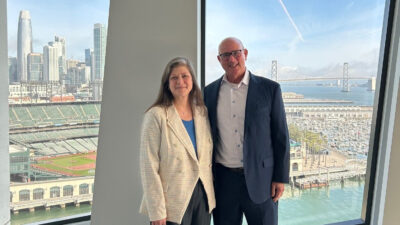Bay Area Council Applauds BART for Restoring Service Hours Ahead of Schedule, Bolstering Economic Recovery
SAN FRANCISCO—On July 1, BART agreed to restore near pre-pandemic service four weeks earlier than originally planned, as well as offer late-night limited trains beginning July 15, after advocacy from eight Bay Area organizations, including the Bay Area Council, Golden Gate Restaurant Association, San Francisco Bar Owner Alliance, San Francisco Travel Association, Hotel Council of San Francisco, California Music and Culture Association, American Rental Car Association, and the Berkeley Music Group. The coalition came together to call on BART’s Board of Directors to immediately restore late night service, emphasizing that anything short of full restoration impedes the region’s economic recovery, contributes to overuse of single-occupancy vehicles, and continues to limit commute options for thousands of the Bay Area’s workers.
Read the Bay Area Council’s June 18 letter>>
“After the sweeping changes wrought by COVID-19, the only way we recover is by being flexible and adjusting to emerging needs. BART modeled that behavior here, and that’s great for our region,” said Jim Wunderman, President and CEO of the Bay Area Council. “We applaud the BART Board, General Manager Bob Powers, the administrative staff and BART’s labor union workforce for agreeing to provide badly needed service that will stimulate our economic recovery and ensure that workers can get to and from their jobs.”
As vaccination rates climb and COVID restrictions have largely lifted following the state’s June 15 reopen date, Bay Area residents have been rapidly returning to in-person activities like dining out, attending museums and socializing with friends and family. Restaurants, museums, bars, and other tourism and event venues—as well as those workers staffing them—were not fully able to welcome customers back until BART service hours reflected the full reopening of the economy. The region’s public transit systems provide essential transportation service to workers, customers, and tourists who want to spend money at restaurants, visit attractions, and attend cultural events—and want to do so without having to use an automobile.
Beginning August 2, BART will increase service to near pre-pandemic levels four weeks earlier than August 30, as originally planned, according to a July 1 press release. Service will increase and hours will be extended to midnight Monday through Saturday during this period. Beginning July 15, BART will also run four additional late-night trains from select stations in order to provide residents and workers more opportunities for transit until the August 2 service increase.
The hospitality and tourism industries have suffered disproportionately during the pandemic, losing almost 50% of pre-pandemic jobs in April 2020, when the nine-county Bay Area’s unemployment rate spiked to 13.7%. Research analyzed by the Bay Area Council Economic Institute shows the leisure and hospitality industry struggled to regain jobs until January 2021.
“We are thrilled that our organizations’ voices came together and helped bring an urgent issue to the attention of BART, and that it resulted in an immediate solution,” said Laurie Thomas, Executive Director, Golden Gate Restaurant Association. “The conversations that happened and the real desire by the BART Board of Directors, BART staff and BART’s labor partners to quickly find a solution is a testament to how we can solve issues by all working together. We look forward to bringing back staff and to reopening more of our restaurants to tourists and residents alike.”
The coalition of organizations calling on BART to restore service expressed in multiple letters to the BART Board of Directors that extending to pre-pandemic late night hours was necessary to bring leisure and hospitality jobs back to pre-pandemic levels. They also stressed that the additional service would benefit BART, as well: ridership remains at 17% of pre-pandemic levels, and restoring more service hours would win back customer confidence.
Read the Golden Gate Restaurant Association’s June 24 letter>>





